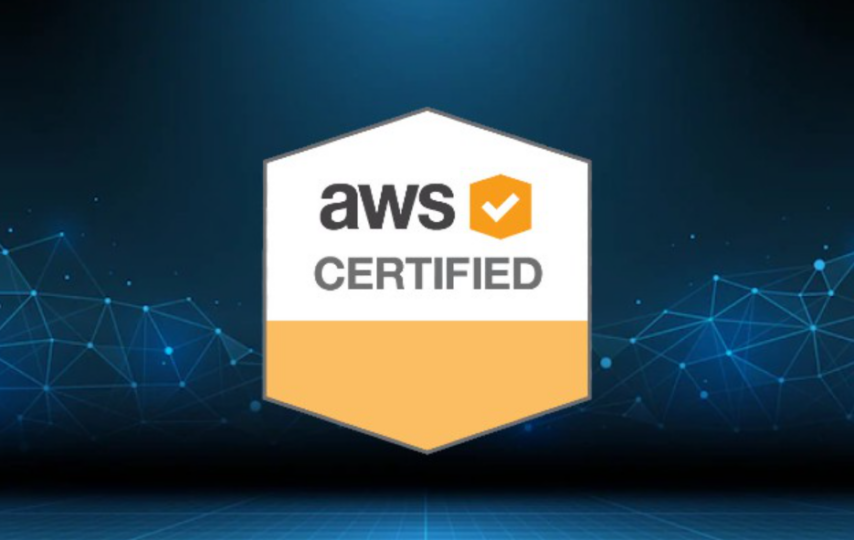Introduction to AWS Certification
Welcome to the world of AWS Certification, where cloud experts are forged and businesses thrive in the digital age! In this fast-paced era of technology, having a solid understanding of Amazon Web Services (AWS) is essential for professionals looking to stay ahead of the curve. But how do you validate your skills and knowledge? how to renew aws certification comes into play.
Whether you’re an aspiring cloud architect, a seasoned developer, or an IT professional eager to enhance your career prospects, achieving an AWS certification can open doors to exciting opportunities. From entry-level foundational certifications to advanced specialty exams, there’s a pathway for every ambition and expertise level.
So, if you’ve ever wondered about the validity and significance of AWS certifications in today’s competitive job market or simply want guidance on how to renew your existing certification – look no further! We’ll dive into all aspects of AWS certification: from its three levels and benefits to preparation tips and frequently asked questions.
Are you ready? Let’s explore the world of AWS Certification together and unlock new possibilities that await!
The Three Levels of AWS Certification
The Three Levels of AWS Certification
AWS offers three levels of certification to cater to different skill levels and job roles within the cloud computing industry. These certifications are designed to validate an individual’s knowledge and expertise in using AWS services effectively.
1. Foundational Level: This entry-level certification is perfect for individuals who are new to AWS or have minimal experience with cloud technology. It covers basic concepts such as understanding the AWS Cloud infrastructure, identifying key services, and navigating through the management console. Obtaining a foundational level certification sets a strong foundation for further specialization.
2. Associate Level: The associate level certifications are intended for those with some practical experience working with AWS services in real-world scenarios. There are three specific certifications under this category – Solutions Architect, Developer, and SysOps Administrator. Each focuses on specific skills related to designing and implementing applications on the AWS platform.
3. Professional Level: The professional level certifications validate advanced technical skills and hands-on experience in building complex solutions on Amazon Web Services. These prestigious certifications require a deeper understanding of architectural best practices, security considerations, performance optimization techniques, cost optimization strategies, and more.
Each certification level builds upon the previous one, allowing professionals to gradually enhance their expertise as they progress through their career journey within the realm of cloud computing.
By obtaining higher-level certifications, individuals can demonstrate their ability to handle more complex projects and take up leadership roles within organizations leveraging AWS technologies.
The Benefits of Being AWS Certified
Being AWS certified offers a multitude of benefits, opening up exciting opportunities for IT professionals. Let’s explore some of the key advantages:
1. Enhanced Career Opportunities: With the rapid growth of cloud computing, organizations are actively seeking professionals with expertise in AWS. Holding an AWS certification gives you a competitive edge and increases your chances of landing high-paying job roles.
2. Recognition and Credibility: AWS certifications are globally recognized and respected within the industry. They validate your skills, knowledge, and commitment to staying updated with the latest technologies.
3. Expanded Knowledge Base: The process of preparing for an AWS certification involves diving deep into various Amazon Web Services offerings. This not only helps you gain comprehensive knowledge but also enhances your problem-solving abilities.
4. Networking Opportunities: Joining the community of AWS certified professionals provides ample networking opportunities through forums, events, and social media groups where you can connect with like-minded individuals and industry experts.
5. Personal Growth: Achieving an AWS certification requires dedication, discipline, and continuous learning. It demonstrates your willingness to invest in self-improvement and showcases your commitment to professional development.
6. Cost Savings for Organizations: Companies that employ more than one individual with an active AWS certification may qualify for cost-saving benefits on their overall investment in cloud services from Amazon Web Services.
7. Satisfaction at Work : Having proven expertise in managing complex cloud infrastructures builds confidence in handling challenging projects effectively, resulting in greater job satisfaction.
In conclusion,the benefits of being aws certified extend far beyond just career advancement.
They provide recognition,collaboration opportunities,growth both personally and professionally,and potentially cost savings for organizations.
The value of aws certification is unquestionable in today’s rapidly evolving technology landscape.
How to Prepare for AWS Certification
To prepare for AWS Certification, it is crucial to have a clear study plan in place. First and foremost, familiarize yourself with the exam structure and content domains. This will help you identify your strengths and weaknesses so that you can focus your efforts accordingly.
Next, take advantage of the various resources available to you. AWS provides official training courses, online documentation, whitepapers, and practice exams. These materials are a treasure trove of knowledge that can greatly enhance your understanding of AWS services and concepts.
Hands-on experience is key when preparing for AWS Certification. Set up an AWS account and start experimenting with different services. By working on real-world projects or creating test environments, you’ll gain valuable practical skills that will be tested in the certification exams.
Additionally, consider joining study groups or forums where you can interact with fellow candidates who are also preparing for the same certification. Sharing experiences and discussing challenging topics can provide new insights and perspectives.
Don’t underestimate the power of practice tests. They not only help familiarize yourself with the exam format but also highlight areas where further review may be needed.
Remember that preparation is key to success in any certification exam! So make sure to allocate enough time for studying, practicing hands-on tasks, reviewing concepts thoroughly, and seeking assistance whenever needed.
FAQs about AWS Certification
1. What is the validity of AWS certification?
The validity of an AWS certification varies depending on the level and type of certification you achieve. Generally, most certifications are valid for three years. However, it’s important to note that technology is constantly evolving, and new versions of AWS services are released regularly. To stay up-to-date with the latest advancements in cloud computing, it’s recommended to renew your certification before it expires.
2. How can I renew my AWS certification?
To renew your AWS certification, you must pass a recertification exam or earn a higher-level certificate within three years from the date of your initial certification achievement. This process helps ensure that certified professionals have relevant knowledge and skills when working with current technologies offered by Amazon Web Services.
3. Can I use continuing education credits to renew my AWS certification?
Yes! You have the option to use continuing education credits (CECs) to maintain and renew certain advanced-level certifications like Professional and Specialty certifications in lieu of taking a recertification exam. By participating in approved activities such as attending webinars, completing online courses, or contributing to the development community through speaking engagements or blog posts related to AWS technologies, you can earn CECs towards renewal.
4. Is there a deadline for recertification after my credential expires?
There is no specific deadline for recertification after your credential expires; however, if your certification has lapsed for more than two years since its expiration date, you will be required to start over by passing all required exams again.
5. Do I need work experience with AWS before getting certified?
While having hands-on experience with Amazon Web Services can greatly enhance your understanding and chances of success in earning an AWS certification, it is not mandatory prior to obtaining one. The official training resources provided by Amazon offer comprehensive content designed specifically for beginners who wish to learn about cloud computing using their platform.
Remember that staying current with the latest advancements in cloud computing is crucial for professionals working with AWS.
Conclusion
In this article, we have explored the validity of AWS certification and its importance in today’s rapidly evolving technology landscape. We discussed the three levels of AWS certification – Foundational, Associate, and Professional – each offering its own unique set of skills and knowledge.
We also highlighted the numerous benefits of being AWS certified, including increased job prospects, higher salaries, and recognition within the industry. Being an AWS-certified professional not only validates your expertise but also opens doors to exciting career opportunities.
To prepare for AWS certification exams, we provided some useful tips such as taking advantage of training resources offered by Amazon Web Services itself or enrolling in reputable online courses like those offered by SPOTO. By dedicating time to study and practice hands-on with AWS services, you can increase your chances of passing the exams on your first attempt.
We addressed frequently asked questions about AWS certification to provide clarity on common concerns. From understanding exam retake policies to exploring options for renewing your certifications when they expire after three years, it’s important to stay informed about the latest updates from Amazon Web Services.
In conclusion (without explicitly stating so), obtaining an AWS certification is a valuable investment in your career growth and professional development. With cloud computing becoming increasingly prominent across industries worldwide, having recognized credentials from a trusted provider like Amazon Web Services can greatly enhance your credibility as an IT professional.
So don’t wait any longer! Take that first step towards becoming an AWS-certified expert today and unlock a world of opportunities in cloud computing!








